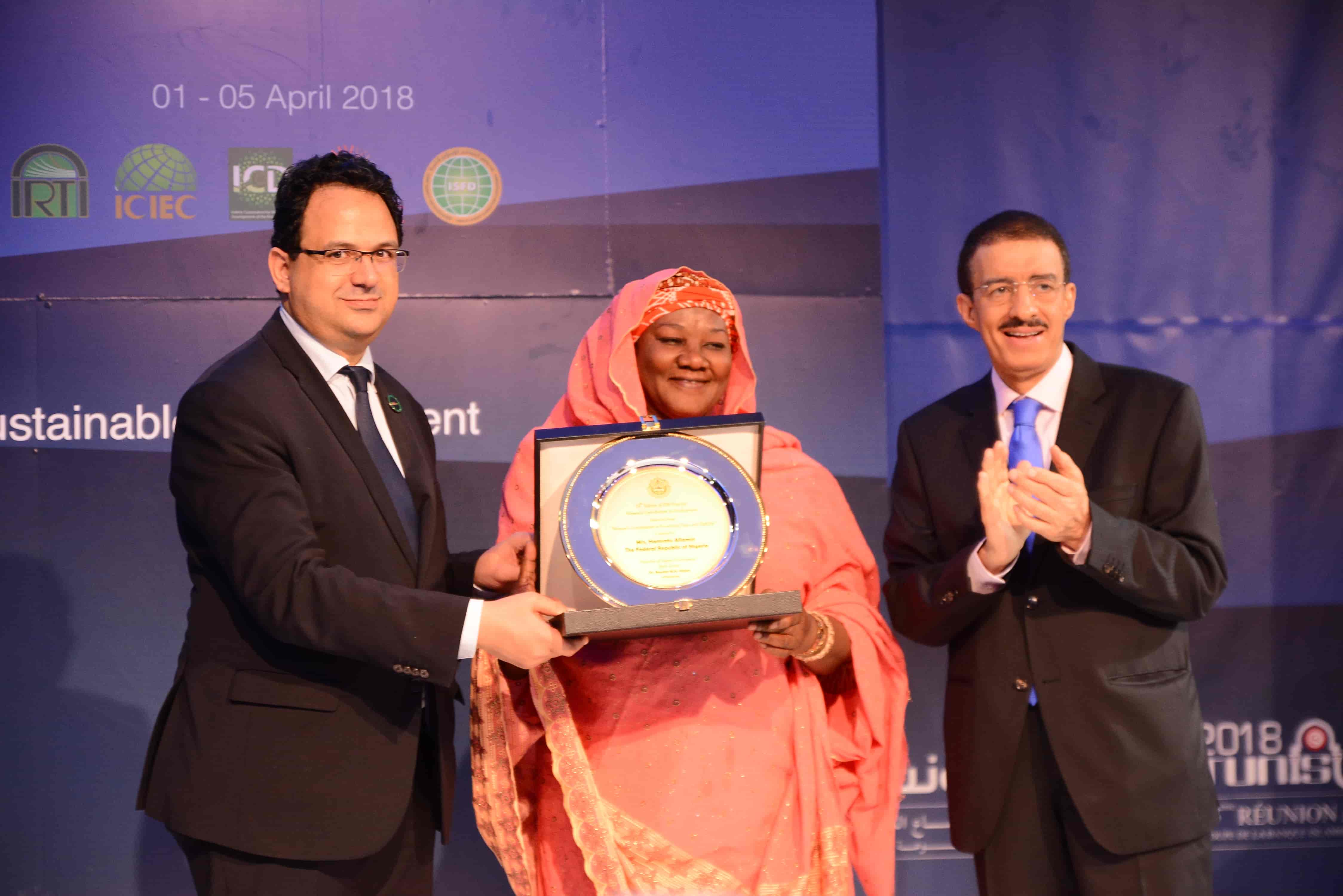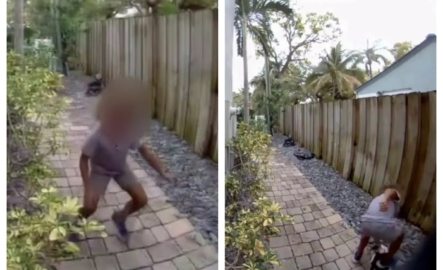Hamsatu Allamin retired from public service in 2016 after more than 30 years as an educator.
Allamin was forced to become a human rights defender and women’s activists with the rise of the militant group Jama’atu Ahlis Sunna Lidda’awati wal Jihad (JAS) commonly known infamously as Boko Haram.
Formed in 2002, the violent extremist group Boko Haram – whose name translates simply as Western education is forbidden – has over the past eight years killed tens of thousands and displaced 2.3 million from their homes and was at a point, according to the Global Terrorism Index, the world’s deadliest terror group.
Allamin witnessed the violence escalating with the counterproductive strategies that the government and security forces were employing and and she realized she had to intervene.
“It was then that I took it upon myself to visit [the areas where JAS was recruiting] and know who these boys are, identify with the parents, sympathize with them, with the conviction that someone has to engage with them to stop the violence,” she stated.
After its founding in 2002, Boko Haram’s increasing radicalization led to the suppression operation by the Nigerian military forces and the summary execution of its leader Mohammed Yusuf in July 2009.
Resurged unexpectedly following a mass prison break in September 2010, Boko Haram became increasingly sophisticated with initial attacks, against soft targets, but progressing in 2011 to include suicide bombings of police buildings and the United Nations office in Abuja.
Completely abhorred and sacredly shunned with fewer people openly talking about Boko Haram, Allamin would in her motherly and fearless demeanor dared to engage the notorious organization.
“I talk with Boko Haram even today, and they are open to [a] peace deal,” Allamin, 60, told OZY.
Allamin, from the elite Kanuri family, the same tribe from which Boko Haram emerged, is an educator by profession. After getting her education at the University of Maiduguri she relocated to a small village where her husband had inherited his father’s position as a traditional leader.
Allamin began teaching at a community college, and also started organizing forums for grassroots women to gather and discuss issues arising within the community.
Extremely deft in listening, analyzing and initiating new strategies, Allamin led her call on the Interfaith Mediation Center in Kaduna to intervene in what was happening in her region, eventually leading to the Presidential Committee for Dialogue — bringing national and international attention to the situation.
“Gradually, even Boko Haram understood I was harmless, and they started opening up to me,” she told OZY.
In 2014, Allamin helped organize the global “Bring Back Our Girls” campaign, gathering attention from then United States’ first lady Michelle Obama after Boko Haram abducted more than 200 schoolgirls.
Speaking on why she decided to start peace activism in a 2018 chat with International Civil Society Action Network (ICAN), Allamin spoke about how she was brought in a very peaceful society with renowned Islamic scholarship, where violent extremism was completely alien.

“We have never witnessed mass violence. Gradually we found ourselves amid this Boko Haram insurgency, started by my known kinsmen, in my own community. It is terrible. If someone tells you they do not have a relative distant or close who joined Boko Haram, it is a lie,” she said.
“However: If a part of your body becomes infected, do you cut it and throw it away or do you treat it? On this basis, I look at what happened to the boys in my society. Nobody else was doing anything, so I said, this is a period where someone has to engage with them. This mad circle of violence has to be stopped,” Allamin emphasized.
A member of the global Women’s Alliance for Security Leadership (WASL) and Federation of Muslim Women in Nigeria and the founder of the Allamin Foundation for Peace and Development, she would then reach out to communities where Boko Haram were heavily recruiting, despite the dangers.
“But I had to go there and connect with the women. They were at first threatening me, but gradually they became cooperative and apologized for the lack of knowledge of my intentions,” she said.
Allamin started communicating with Boko Haram and at the same reaching out to the government “especially the security forces who do not know who Boko Haram is.”
To the security forces any youth in the society is Boko Haram because when they attack or kill, they run back to their communities and take refuge in their own houses. So in response, the government burns houses and arrests all without differentiation. “The toll was too high. So I had to intervene through rehabilitating and reintegrating communities where they have heavily recruited,” Allamin said.
As Nigeria-based analyst, Justice Nwafor points out: “It is always important to spare a peacemaker in every violence.”










